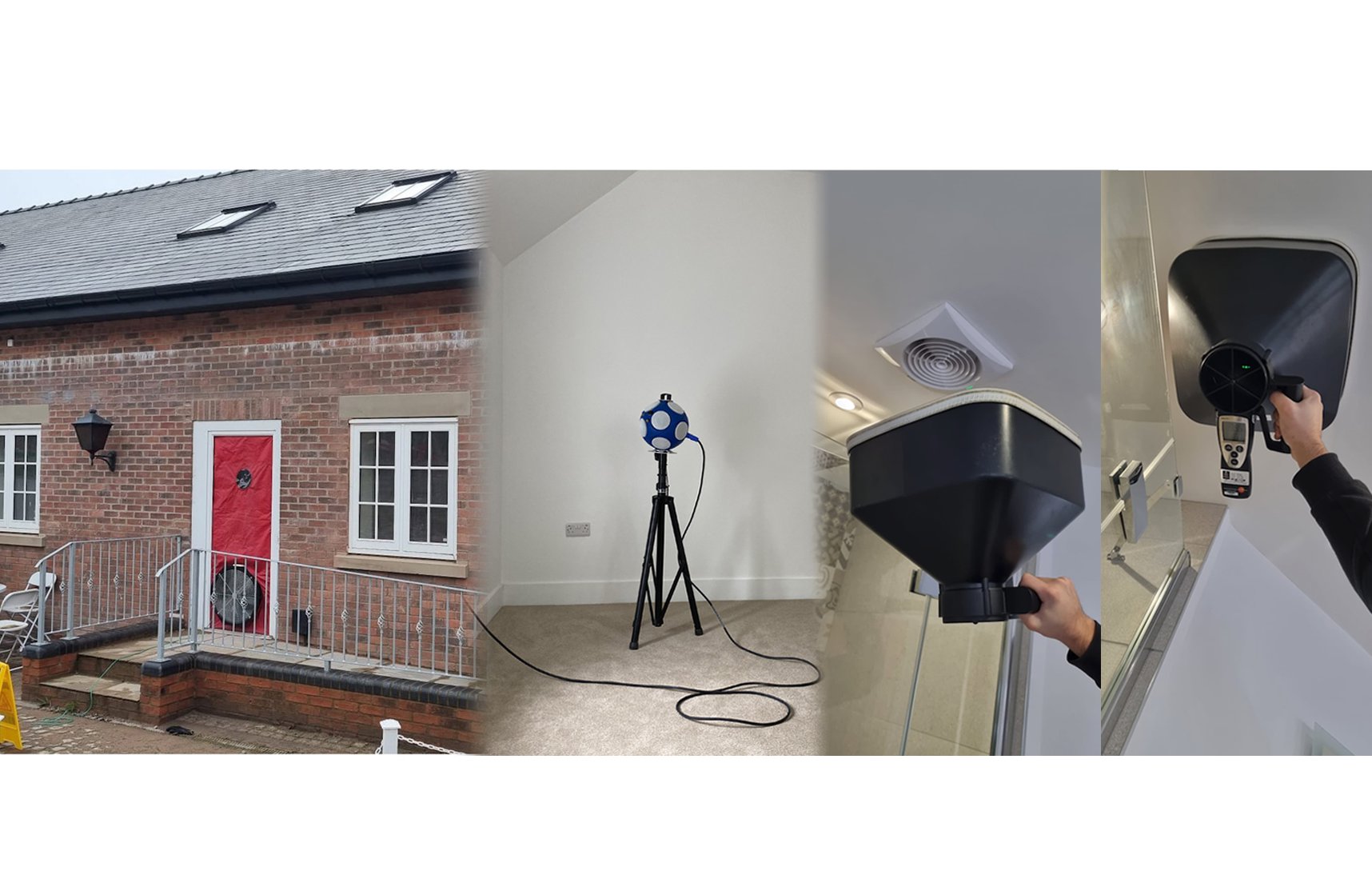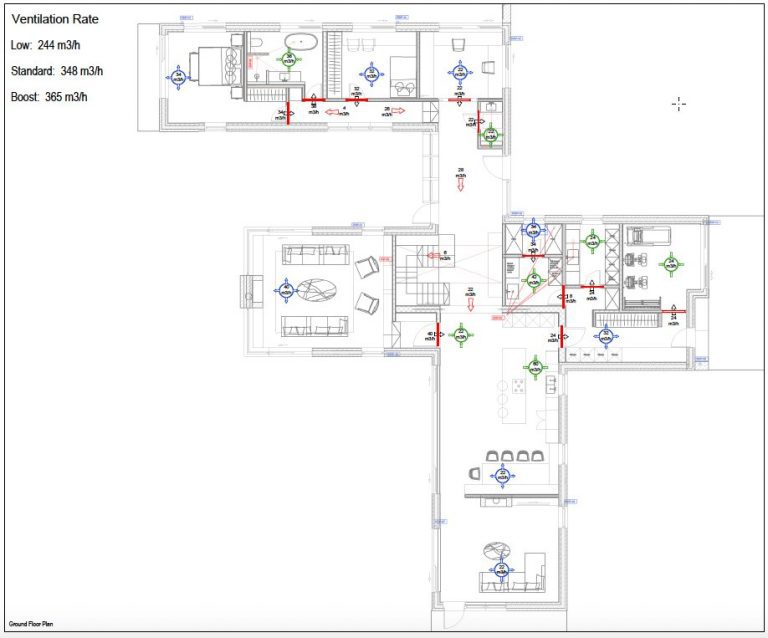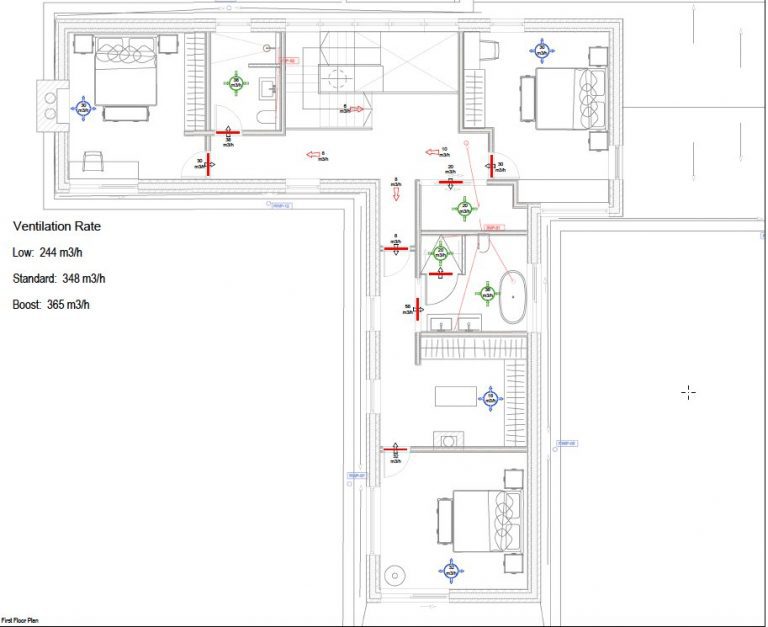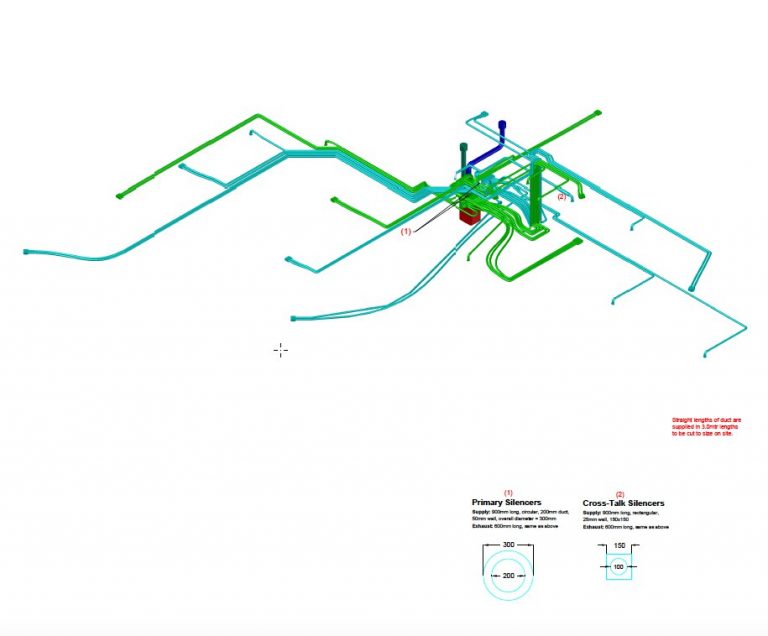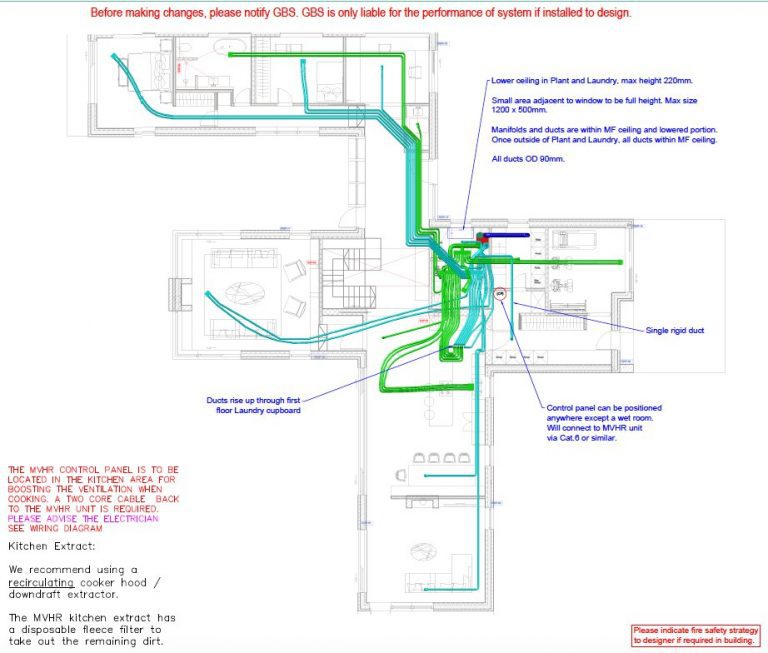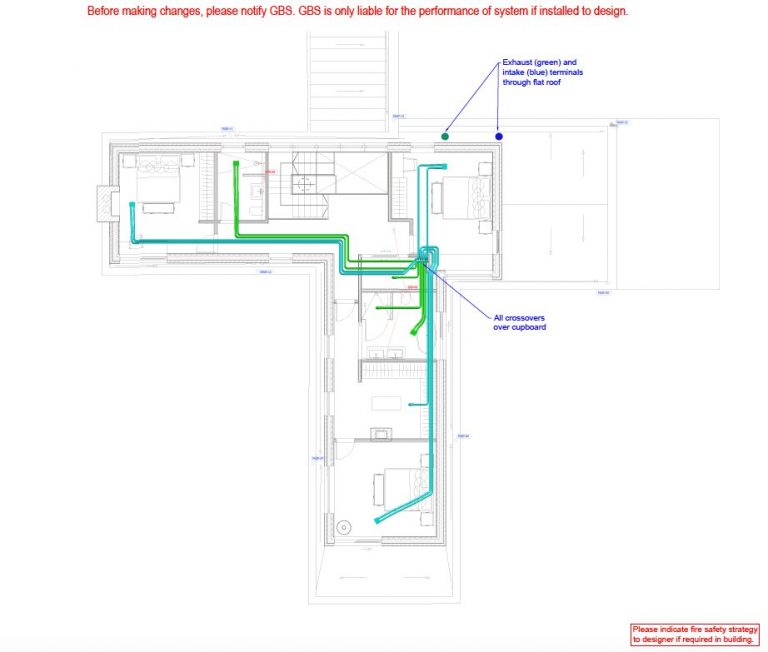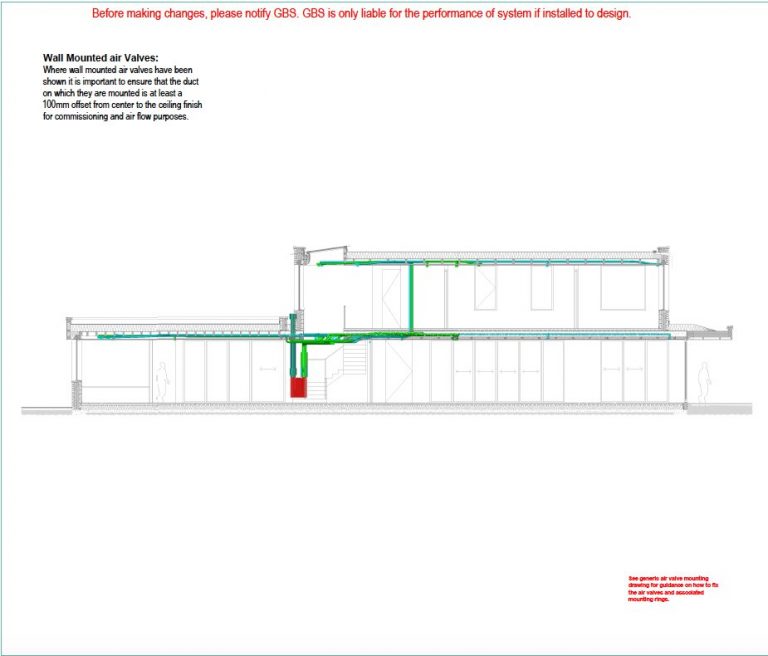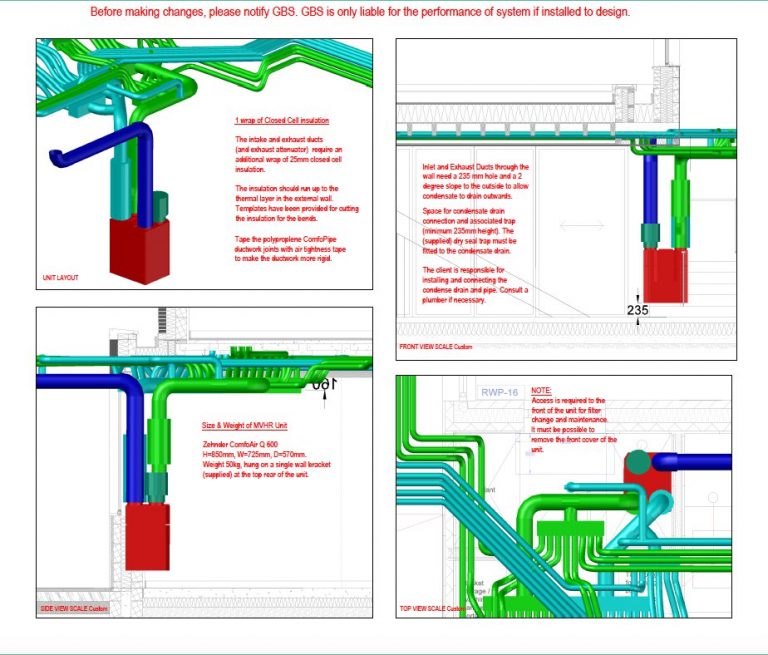Mechanical Ventilation with Heat Recovery systems are becoming more popular to install as a means of keeping air flowing around a property. Because of this, electricians and plumbers are increasingly offering MVHR installation as part of their packages. This can be a great, and cost effective, way to install an MVHR system.
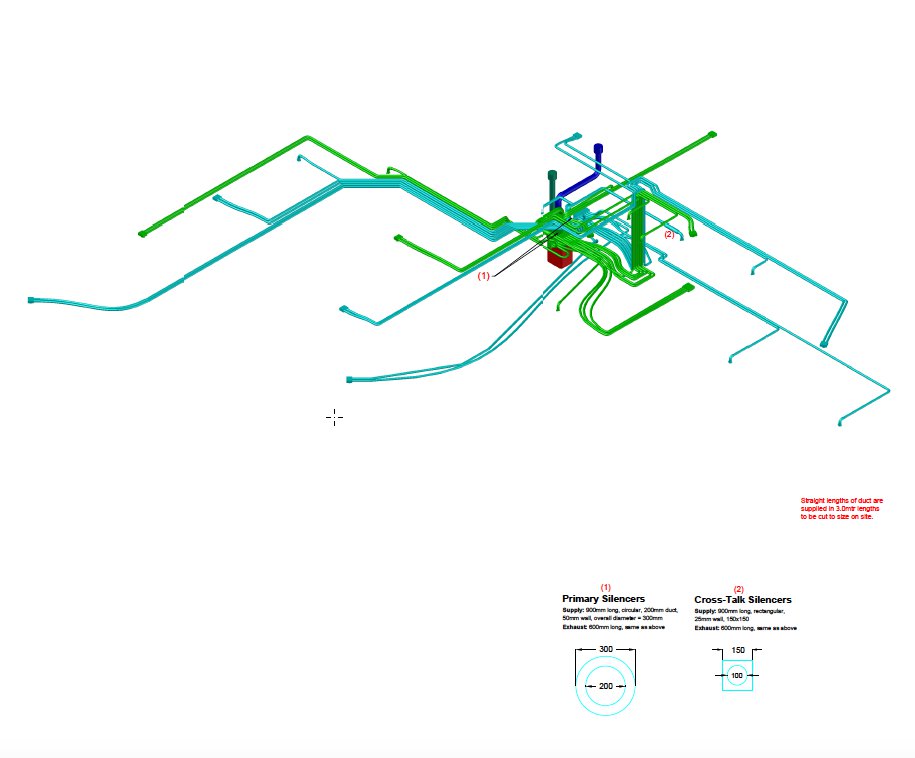
The difficulty can come about at the end of the process, because to run your MVHR in the most efficient manner, it needs to be carefully commissioned and balanced. Electricians and plumbers often don’t have the equipment or knowledge to do this.
MVHR Rebalancing
To achieve a balanced MVHR system, the designer must consider the air flows required for each room and the size and location of air inlets and outlets. The system must also be installed with care to ensure that there are no blockages or leaks that could disrupt the air flow balance.
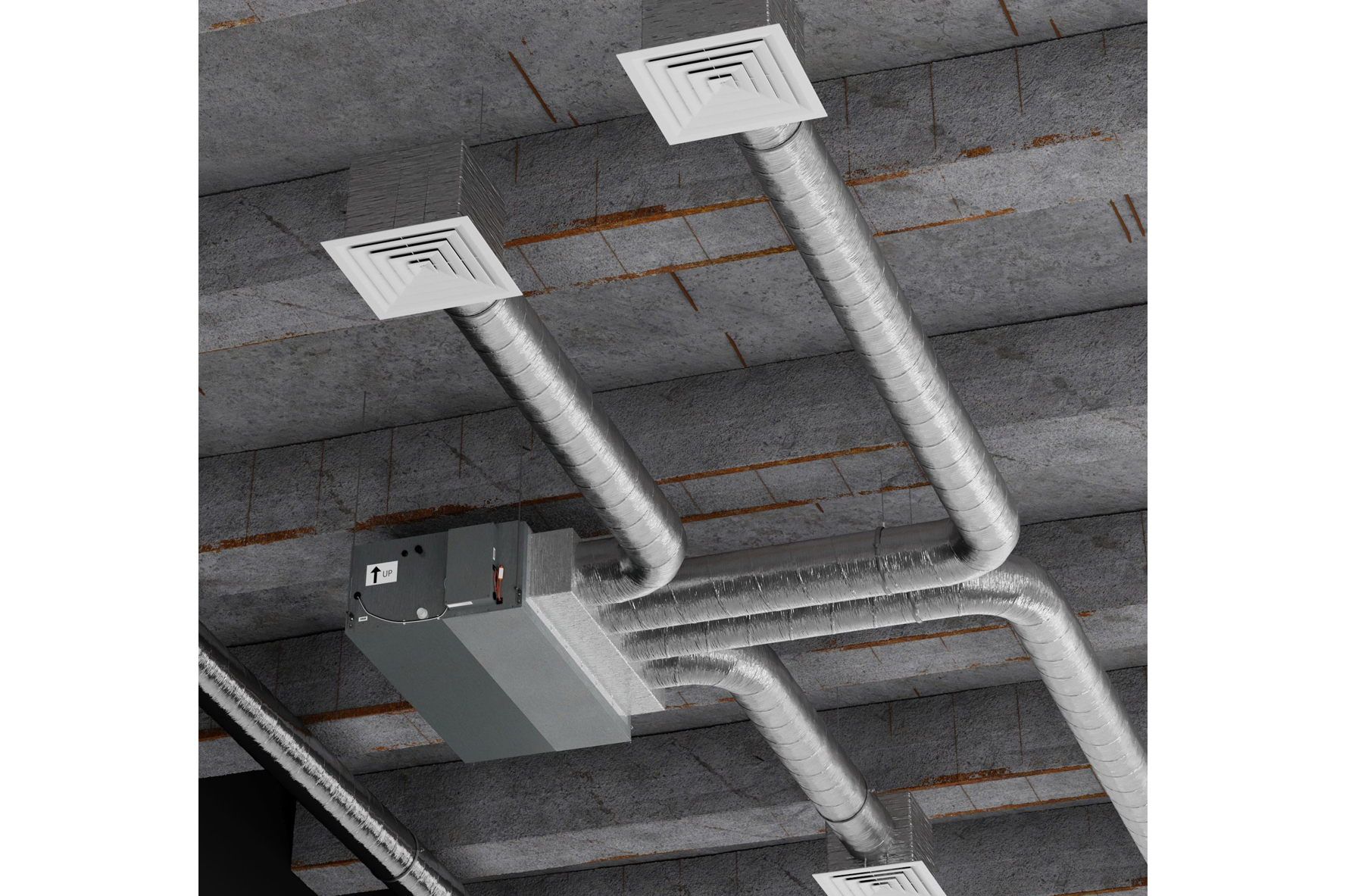

MVHR Commissioning
Our team of engineers can visit your property at the end of the build, or even once you have moved in. They will test the full MVHR system and make small tweaks to the system to make sure everything is running correctly and efficiently.
MVHR Systems
Overall, an MVHR system can provide effective and efficient ventilation for both residential and commercial applications. By supplying fresh air and extracting stale air while recovering heat, they can help to create a comfortable and healthy indoor environment while also reducing energy costs.
Supply fresh air
MVHR systems are designed to supply fresh air to homes and extract stale air from rooms such as kitchens, bathrooms, and bedrooms.
Residential and Commercial
MVHR systems are often used in residential applications, they can also be used in commercial buildings. They are a popular choice for energy-efficient ventilation systems in schools, offices, and other commercial properties.
Energy Efficiency
The heat recovery unit within the system recovers heat from the stale air extracted from the building and uses it to warm up the incoming fresh air. This can help to reduce heating costs and improve energy efficiency.
Frequently asked questions
- What is a ventilation test?
-
A ventilation test measures the mechanical extract flow rate of your extractor fans (e.g., the suction power) to ensure they are good enough to remove damp air and smells from your property. We have a special gauge and hood that isolates the vent and measures the fans flow rate.
- What do I need to provide for a ventilation test?
-
We just need to know how many mechanical extract vents you have that need testing and their locations. These need to all be fitted, functioning, and externally ducted prior to our test engineer visiting.
- What do I need to do before a ventilation test?
-
All you need to do before a ventilation test is make sure all the vents are fitted, functioning and externally ducted. We would highly recommend keeping ducting runs as short as possible and using rigid ducting for as much of the runs as you can as this will mean your vents are the most efficient.
- Does MVHR need to be commissioned?
-
As MVHR becomes more common, it is now increasingly being installed as part of electrical contracts. Correctly commissioning your MVHR installation can make a massive difference to the effectiveness and running costs of your system. Our engineers can complete both initial commissioning and yearly servicing (including filter changes and rebalancing) to keep your system running smoothly.

